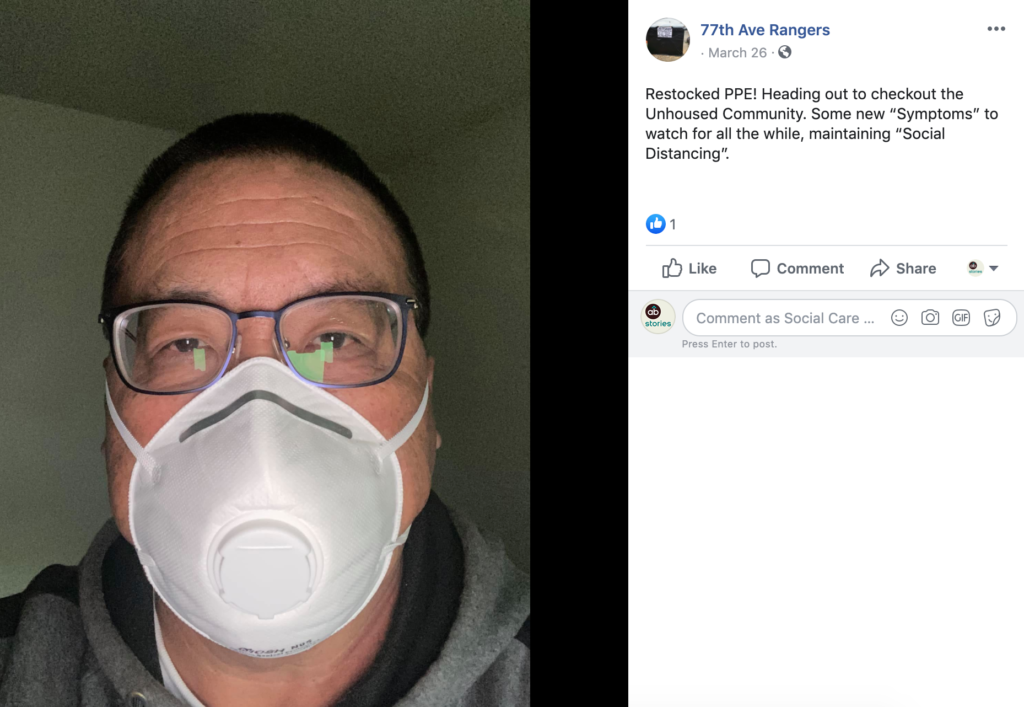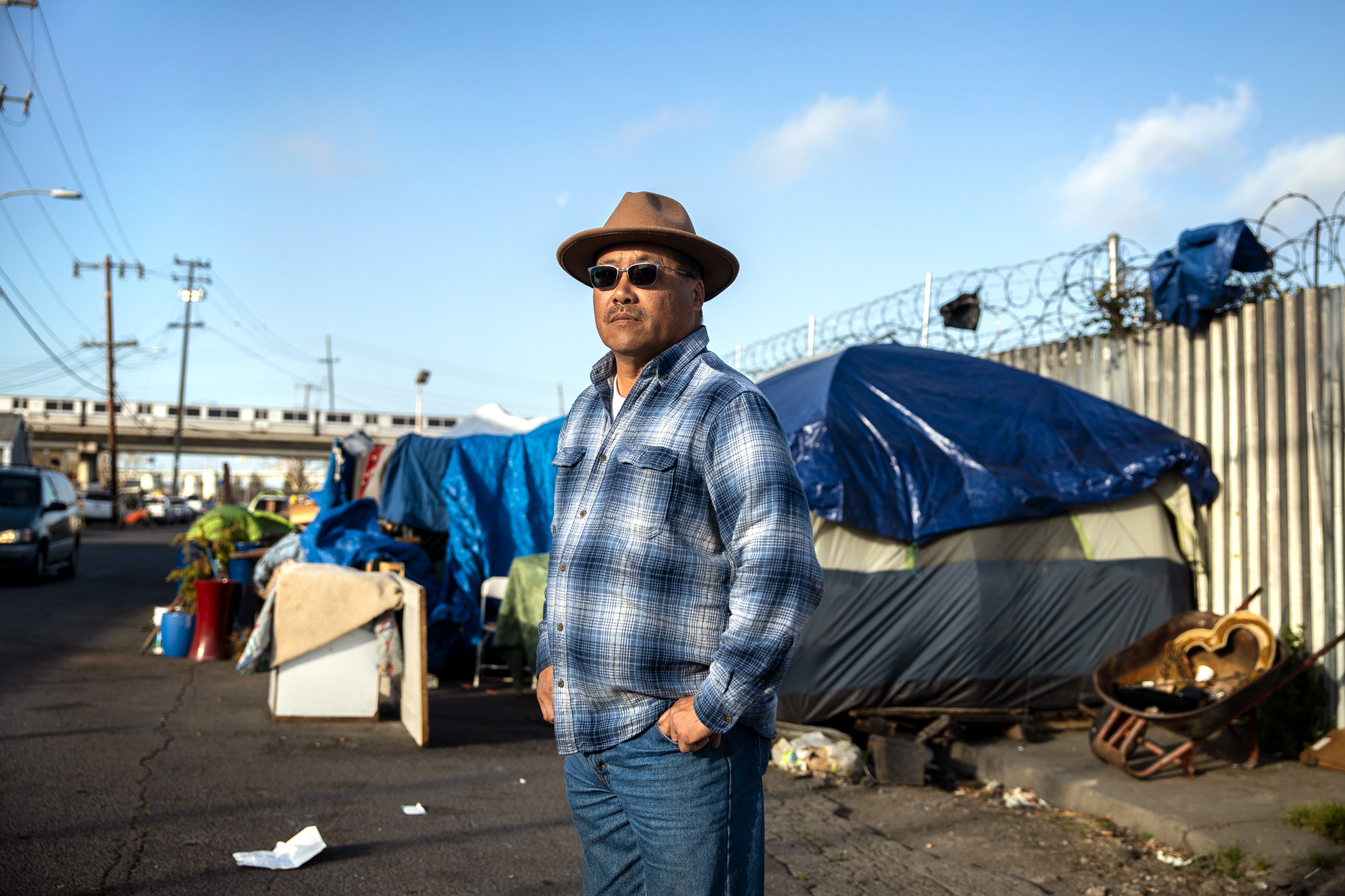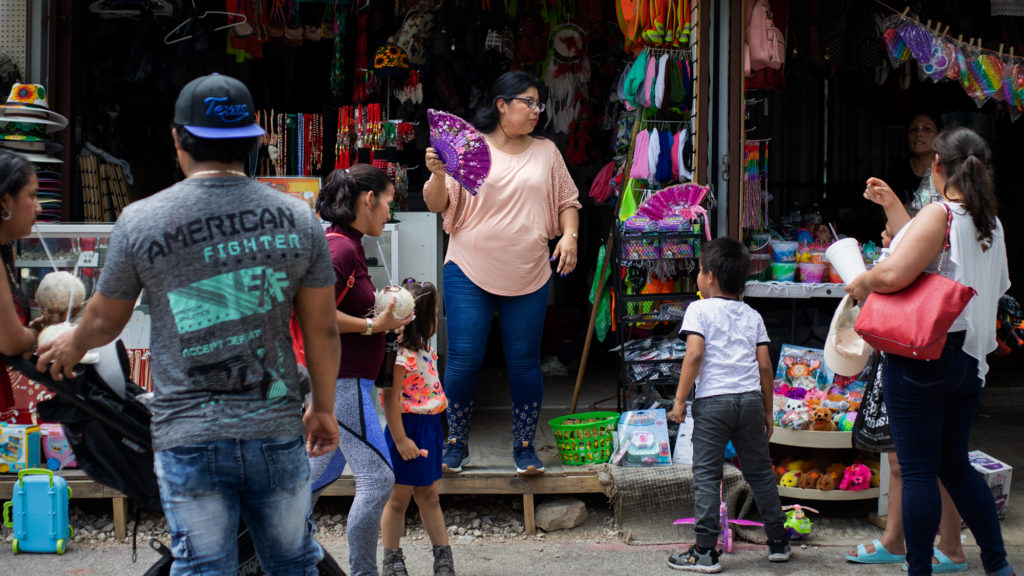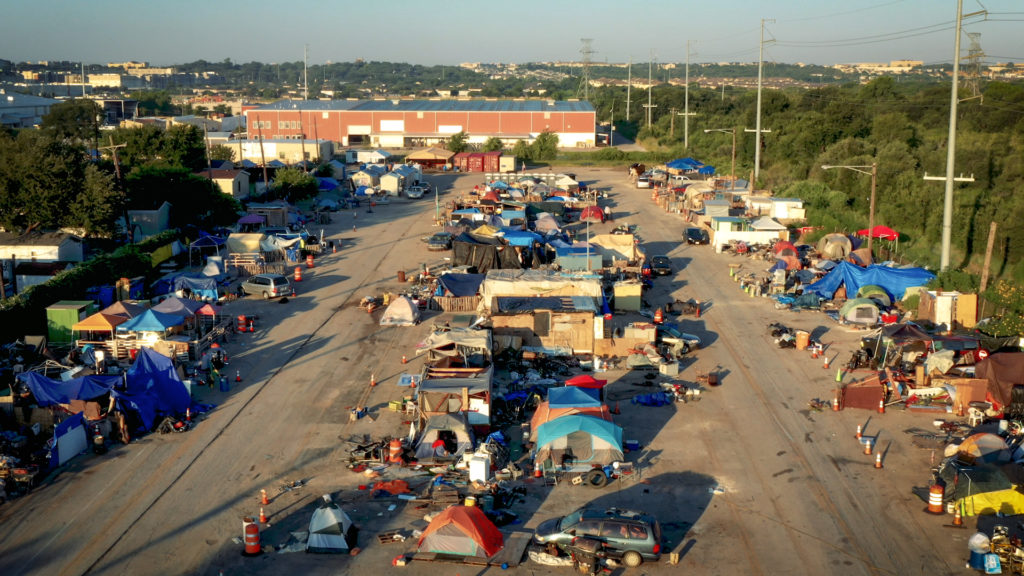Derrick Soo makes it his full-time, unpaid job to improve conditions for Oakland’s homeless population. For the past six years, he’s worked with food pantries, nonprofits, city officials, lawyers, and health care institutions to bring more dignity and basic rights to people experiencing homelessness in his community.
Derrick has lived through homelessness himself — years of it. He actively sought government assistance, but received little support or unfortunate solutions. He eventually started sleeping at a spot he found on 77th Avenue.
“Within a year, people found out I was there,” he says. “We grew to 30 overnight, then to 62 in two weeks. Soon, we had two porta-potties and two hand-washing stations. Everybody flooded in, and that’s when we became a community.” That’s also when Derrick began to fight for his neighbors, not just himself.
During a normal week, pre-pandemic, Derrick spent his days coordinating with partners who deliver services to the camps. He worked his city connections to advance policy solutions he believes can help. But with the city at a near standstill and a deadly virus spreading across the country, Derrick is now working in crisis mode. “It’s just been so dramatic,” he says. “It’s just been crazy.”
For years, Derrick has worked with other groups in the area to increase food accessibility to Oakland’s homeless community. But food service organizations are suddenly strapped as they try to balance safety against the need for volunteers. Many groups have gone dormant and shifted their load to larger organizations, while demand only continues to grow.
Derrick is currently working with The East Oakland Collective, which is still running and scrambling to adapt to changing conditions. They’re now building snack and sanitation packs for homeless people across the city. Derrick is making regular runs to the sites he typically visits, and says “people are literally running up to get the food, they’re just so happy to get it.”
Now that fewer people are driving and more are spending less, panhandling revenues have dwindled. Local recycling facilities — another source of limited income — are also shut down. But even if Oakland’s homeless had money to spend, there are fewer places to shop. For a population subsisting day to day with only basic needs barely met, a crisis like this one pushes the vulnerable to the very brink.
City officials are now working to secure two hotels where people who are in the greatest need of shelter and most at-risk for the coronavirus could more safely insulate themselves from potential exposure. Derrick is working to identify the people living on the streets who meet the criteria for this new housing option, so they can benefit.

He’s also checking on friends and acquaintances, or anyone he hears about who is seriously ill, battling a disease, or just living out their final days — and he’s adding new COVID-19 symptoms to his checklist as new information rolls in.
“I’m really trying to focus on folks who are struggling on the streets,” Derrick says. “The ones most likely to die because they have very serious health challenges, cancer, or other medication situations the city is not helping to deal with.”
Derrick, who is 60, is a cancer survivor himself, putting him at greater risk to the dangers of COVID-19. But he’s gathering as much information he can, avoiding direct contact, and going about his work as carefully as possible.
For the past few months, Derrick has been staying off the street, at a friend’s apartment, but that friend is also at greater risk of contracting the virus. Because Derrick is interacting with so many people each day, even cautiously, he and his friend have decided it’s best for Derrick to go, so he’s now preparing to return to the 77th Avenue encampment.
As part of his advocacy work, he also runs a Facebook page for the 77th Ave Rangers, where he points people to resources, documents his work, and calls out nearby business owners who violate codes that compromise safety for those at the camp.
He’s working longer days during this crisis, and goes to bed with a heavier heart. “Usually, before laying down, I reflect on what I accomplished, was it worth it, did it make a difference, and what could I have done better,” Derrick says. “It’s been so tough because the only thing I can think of is — I wish I had more food bags. It’s the worst feeling when you have one last person coming up and you just ran out. It’s the worst feeling in the world because you know somebody’s gonna go hungry.”
Derrick says he once lived amongst “the opulent class,” and never concerned himself with the issues he fights for today. “Now I’m with the people I used to not think much of, and by living amongst those I wasn’t comfortable with — that has given me a new perspective on folks who are struggling. It’s just completely turned me around. I’m a whole different person now.”
For those interested in helping Derrick’s efforts to assist the unhoused people of Oakland, he says donations to The East Oakland Collective can help him and others bring more food and supplies to the homeless community.



